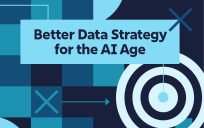This blog post is an excerpt from our recent Industry Perspective, Data Intelligence for Everyone The Future of Decision Making in the Public Sector. To download the full report, head here.
A variety of market drivers have brought government to the tipping point of needing critically improved data analytics. As always, shrinking budgets, reduced resources, and a call to do more with less has the government looking to take advantage of data to drive efficiencies.
Additionally, the public sector is driven by trends happening first in the private sector that raise the bar for citizen expectations. It continues to demonstrate how leveraging data to deliver quality at speed is the next competitive differentiator – transforming business models and creating ripple effects that revolutionize entire industries, app by app.
This is the impact Uber, the popular ride sharing app, had on the transportation industry. Uber captured new forms of data – wait time, location accessibility with respect to cabs – and put it to work, meeting the needs of an underserved audience. This was made possible by robust data intelligence tools that could analyze the information in a way that turned insight into timely, targeted services.
Due to these modern day applications of customer service through better data intelligence, expectations citizens have of their governments are rising. They expect the same level of service from government as they receive in the private sector. As it was when Uber entered the market, the current landscape of data intelligence in the public sector space represents an opportunity for agencies to gain a new perspective on an issue, quickly take action, and build a more responsive government – both top down and bottom up.
The combination of today’s data-rich landscape with a growing preference for targeted “just in time” services gives government the opportunity to maximize the power of data analytics and improve citizen services. This is needed: according to a recent Forrester report, 45 percent of government customers think agency representatives understand their needs, compared with 66 percent of private sector customers.






Leave a Reply
You must be logged in to post a comment.